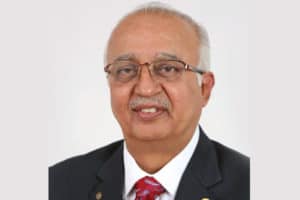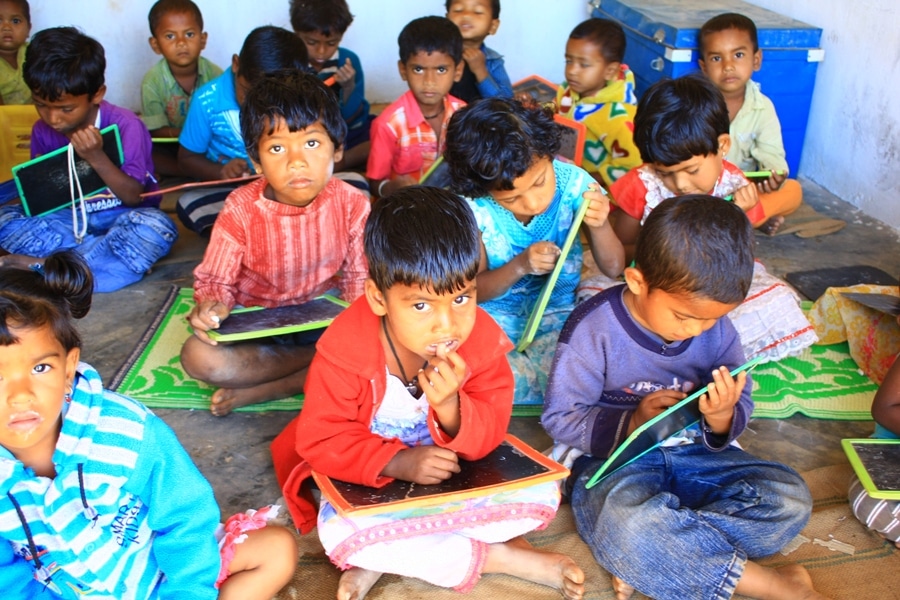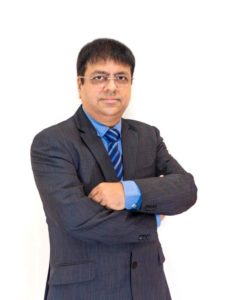Jharkhand is working towards developing an aspirational skill development ecosystem that generates wage premium for the State’s youth. To realise this goal, the Government is setting up large scale aspirational skill development centres in each district and assembly constituency of the State to provide quality jobs to skilled youths and combat distress migration out of the State, says Raj Bala Verma, Chief Secretary, Government of Jharkhand in an interview with Gopi Krishna Arora of Elets News Network (ENN).
What is the vision and mission of Jharkhand’s new Skill Development Policy?
Jharkhand has embarked on an ambitious programme to drive investments in the State through a very successful ‘Momentum Jharkhand’ investment promotion summit followed by three ground breaking ceremonies. The industries setting up manufacturing and services units would require skilled and productive manpower. hence, it is critical that the youth of the State are trained as per the requirements of these industries. We would like to encourage and facilitate enthusiastic participation of industries in the skill development ecosystem of the state. They not only should set up skill development centres but actively collaborate with JSdMS and other skill development agencies of the State Government to improve the quality of skill development programmes.
The essential purpose of skill development programmes is to provide decent jobs. This is only possible through close collaboration and participation of industry in skill development.
Given the enormous task of scaling up the skill development infrastructure and delivery capabilities with speed and certainty in such a short time requires a new impetus through a new Skill development policy for the state
Jharkhand is home to 57 per cent population belonging to working age group, i.e., 15-59 years. How the Government is planning to provide relevant skill training to them for fulfilling the demand of skilled workforce?
We want to ensure aspirational skill development ecosystem that generates wage premium for our youth. We want to set up large scale aspirational skill development centre in each district and assembly constituency of the state. The aspirations of our youth are increasing by the day. We need to match our efforts to provide quality jobs to skilled youths. This will help in combating distress migration out of the state.
We also want our youth to not only seek job but provide jobs through entrepreneurship. We will set up barefoot entrepreneurship incubation programme that will provide avenues for skilled youth to set up nano enterprises.
We want skill to be embedded in the entire education system to improve the employability of our graduates. We need to continuously monitor the changing jobs landscape in the country and state and ensure that our Skill development interventions are future ready to cater to emerging areas like Industry 4.0 technologies.
It is crucial to make skill development aspirational for the youth in the State. What are the plans and framework of the Government to make skill training a matter of choice among youth?
India is perhaps the only country in the world where Skill development is terminal in nature. It is imperative that vertical and horizontal mobility pathways are developed to make Skill development a career choice. Youths getting Skilled through a competency based skill development course should have options for vertical mobility to Skills Universities. Similarly, a credit framework for logical horizontal movement between Skill development and technical/ academic education is the need of the hour.
We also need mass outreach campaign to explain the opportunities related to Skill development to the communities. Role models pertaining to youth within the community who have done well for themselves through skill development program should be advocating the benefits to their friends, families and community at large. Youth winning medals at World Skills makes us all proud and are perfect role models for Skill development ecosystem. Social media outreach seems critical to connect with today’s youth.
“We want skill to be embedded in the entire education system to improve the employability of our graduates. We need to continuously monitor the changing jobs landscape in the country and state and ensure that our Skill Development interventions are future ready to cater to emerging areas like Industry 4.0 technologies.”
What is the skill development plan of Jharkhand Government for women and differently able people of the state?
Women have been traditionally getting skilled in services and light manufacturing like apparel. I think time has come to break all glass ceilings. Why can’t we have women welders, electricians, carpenters, etc? Women are second to none and we will collaborate with relevant industries to substantially increase women participation in all spheres of skill development. Training for persons with disabilities is a highly specialised job given the need for specially equipped trainers, suitably tailored infrastructure, custom designed courses, etc. We have resolved to set up benchmark training centres for differently abled people. They have repeatedly proved themselves equal or better than normally abled people in multiple professions. We want to provide many more such opportunities to differently able people of the state.
The Government of Jharkhand is focusing on creation of quality education ecosystem. How project initiated by the Jharkhand Skill Development Mission Society (JSDMS) will help in achieving the effective outcome?
I think JSdMS is on the right track. They are setting relatively large scale aspirational skill development centres. Focus in on providing relatively longer duration courses with significant on the job training and apprenticeship. The hours for soft skills/ IT/ Life Skills have been significantly enhanced which I think is very important. Their effort to rapidly set up skill development centres in colleges with courses of more than 400 hours Life Skills/ Soft skills training will go a long way making our graduates’ job ready. We want to take our efforts to the next level through collaboration with high capability international partners like ITE, Singapore with whom we propose to set up a brown field project in very near future with Greenfield project to train 12,000 youth coming up in a few years.
How the “Centres of Excellence (COEs) will enable youths of the State to take up industry-relevant skill training and secure a better livelihood?
Centres of Excellence are being set up by global industry leaders using all their expertise and technology to set up very high end Skill development Centres. These will run courses on emerging technologies pertaining to Industry 4.0 and other such jobs of the future. These serve as the perfect finishing schools for our engineering graduates. These high end centres also pass on their expertise further down the chain by operating technical skill development centres in ITIs and similar institutions.

What initiatives are being taken by the Government for skill training of economically weaker section and minority community of the society?
Government of Jharkhand is committed to provide free skill development training to the youth in reasonable proximity of their place of residence. Government of Jharkhand is committed to provide opportunities through skill development intervention to all youths including those belonging to the economically weaker section and minority community. We want our youth to leverage this opportunity to secure good quality jobs not just in India but overseas as well.
How can a digital system be leveraged for collaboration amongst multiple stakeholders in the skill ecosystem in Jharkhand?
We need a very strong Labour Market Management System to serve as backbone to manage the complex ecosystem of skill development in the state. Technology should be extensively used to connect, collaborate and monitor various stakeholders. The success of hUNAR app which serves as a market place connecting the services of skilled youth with demand is particularly encouraging. We need to tap into all digital channels like mobile apps, social media, web based platforms to reach out to the youth and connect them with wage employment/ self-employment and entrepreneurial opportunities
What message you would like to give to youths of Jharkhand in terms of skill development initiatives.
Momentum Jharkhand has created an ocean of opportunities for the youth of the state. They should grab it with both hands. Investing in gaining the right attitude, skill and knowledge will pay huge dividends in the future. They should come forward in large numbers and embrace the various skill development opportunities provided by the Government of Jharkhand.
What is your message for Skill Summit 2018?
Skills Summit 2018 is a platform to reaffirm the Skill development commitment of the Government of Jharkhand to its youth and industry. It is a celebration of our achievements so far and a resolve to take the skill ecosystem of Jharkhand to even greater heights in future. It is also the gathering of some of the best minds in the industry to discuss and deliberate on the challenges and innovative solutions around it. I am certain that it will infuse fresh energy and dynamism in the entire skill ecosystem.


































